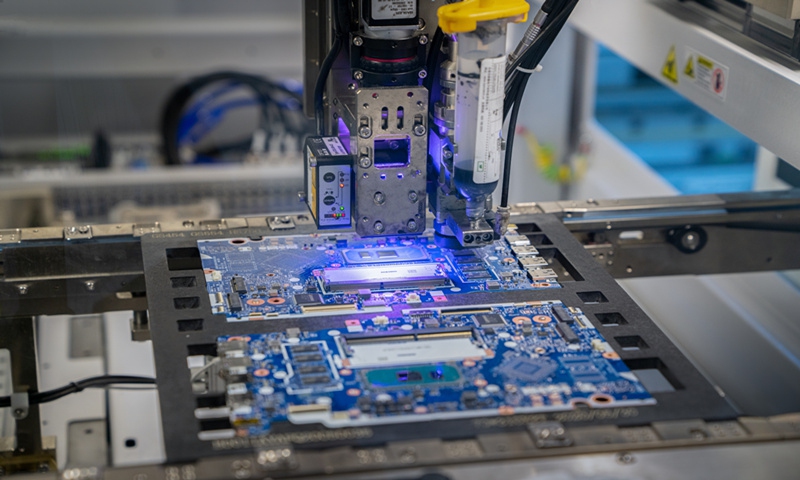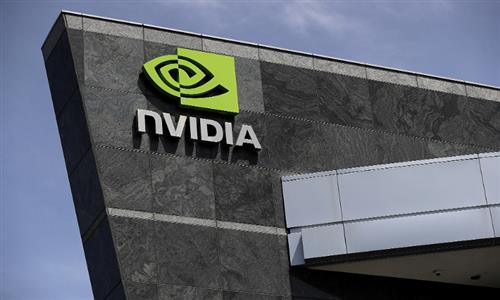US tech crackdown will only boost China’s competitiveness as nation’s chip self-sufficiency forecasts to hit 30%: experts
Nation’s chip self-sufficiency may rise to 30-35% in 2024: analyst

A chip manufacture machine Photo: VCG
While China and the US have resumed communication in various fields, Washington's containment of China in the high-tech sector is unchanged, with the US House of Representatives' China committee intensifying its scrutiny of US chipmakers with interests in China by asking CEOs of industry giants to testify before Congress.
Chinese observers said on Sunday that the US may take more actions to crack down on China's high-tech sector, with semiconductors at the core, but more US containment will only accelerate domestic replacements in China. The US can no longer maintain an important market share in China with only low-end chips, an analyst said, urging the US to meet China halfway to stabilize bilateral ties.
The House of Representatives' China committee has sent letters to Intel, Nvidia and Micron, summoning their chief executives to testify before the Congress, the Financial Times reported on Friday. The move is a "shift" by the panel, which has not held hearings with CEOs from any industry since it was created, it said.
From the US Commerce Department's new chip export controls in October to the Netherlands' cancelation of export licenses for ASML under US pressure, and now to the US House of Representatives' further scrutiny of US chipmakers, they all show that the suppression and containment of China by the US in the high-tech sector remains unchanged, said Xiang Ligang, director-general of the Beijing-based Information Consumption Alliance.
"The Biden administration may come up with more measures to crack down on China's high-tech sector in 2024, but more crackdowns will only prompt China to accelerate domestic replacements," Xiang told the Global Times on Sunday, noting that "The time that US companies could maintain an important market share in China with only low-end products has gone."
China's chip self-sufficiency rate may increase to about 30-35 percent as many domestic chipmakers have expanded manufacturing since the US launched its tech war against China several years ago, Xiang said.
Chinese Foreign Ministry spokesperson Mao Ning said at a press conference recently that the US behavior is "unilateral bullying without principles or bottom lines that essentially denies emerging markets and developing countries the right to a better life for their people," and its selfish move will inevitably backfire.
Analysts urged the US to genuinely meet China halfway and make constructive contributions to bilateral relations by abandoning its Cold War mentality and focusing on mutual benefits in order to stabilize global industry and supply chains and contribute to the global economic recovery.
"The complementary nature of the Chinese and US economies is the basis and prerequisite of bilateral economic and trade relations. Both sides get benefits by being each other's important trade partner," Zhou Mi, a senior research fellow at the Chinese Academy of International Trade and Economic Cooperation, told the Global Times on Sunday.
China-US exchanges in various fields got off to a good start in 2024, with communication carried out in the military, diplomatic and civilian fields.
On Thursday, the Chinese commerce minister and US commerce secretary held a telephone conversion, during which they discussed national security boundaries in the China-US economic and trade fields and focused on the implementation of the important consensus reached between the two heads of state at the San Francisco meeting in November.
This was reportedly a second time recently that the two sides discussed national security boundaries. The in-depth talk is itself a positive signal, and the two sides should step up efforts to meet each other halfway, according to Zhou. He said that the global economy is at a critical period of transformation, which needs large countries including China and the US to jointly make more contributions in new sectors.
"Excessive restrictions will only reduce the competitive advantages of the US while creating more opportunities for competitors," Zhou said.
Despite intensifying suppression and containment by the US, China has been stepping up efforts to strengthen its semiconductor industry chain to achieve greater self-reliance. The release of the Huawei Mate 60 series shows that Chinese companies are capable of making breakthroughs in key technologies amid the grim sanctions and crackdowns by the US, Xiang said.
In addition, China's second phase of the National Integrated Circuit Industry Investment Fund Co, also known as "Big Fund II," invested heavily in semiconductor design, equipment, manufacturing and key links in 2023.
China is expected to increase its share of global semiconductor production in 2024, boosted by government funding and other incentives, industry association SEMI said in its latest quarterly World Fab Forecast report released on January 2.



